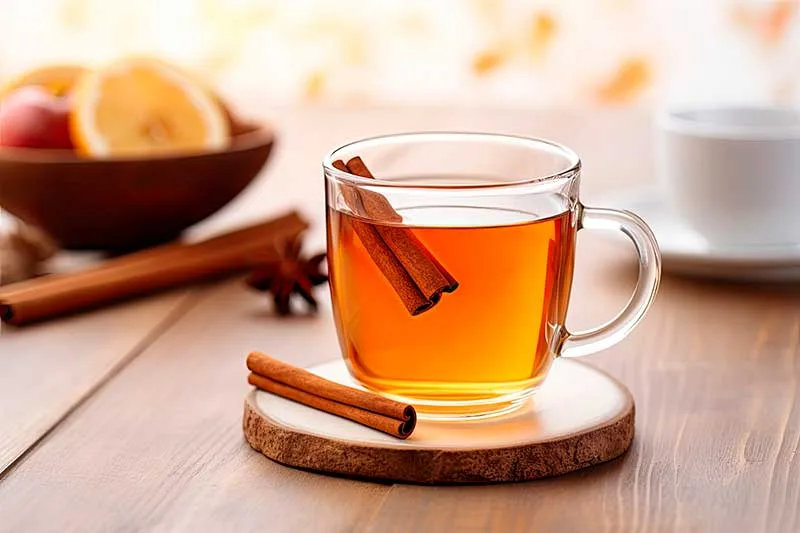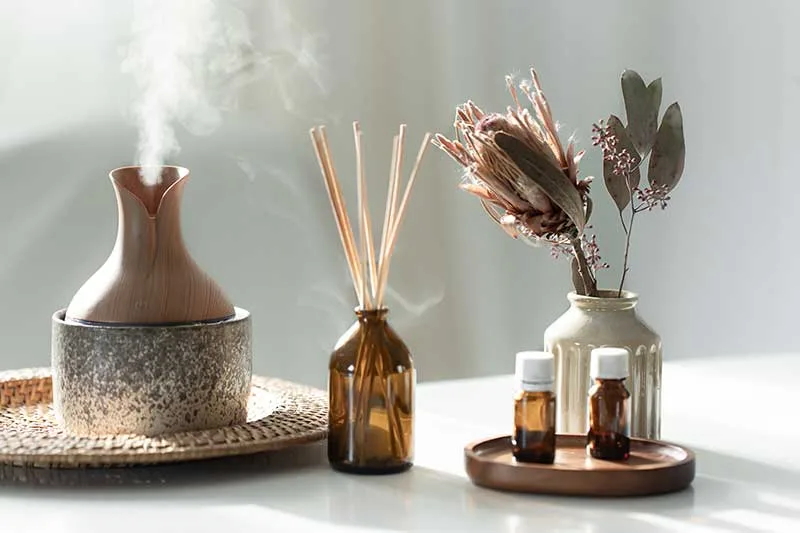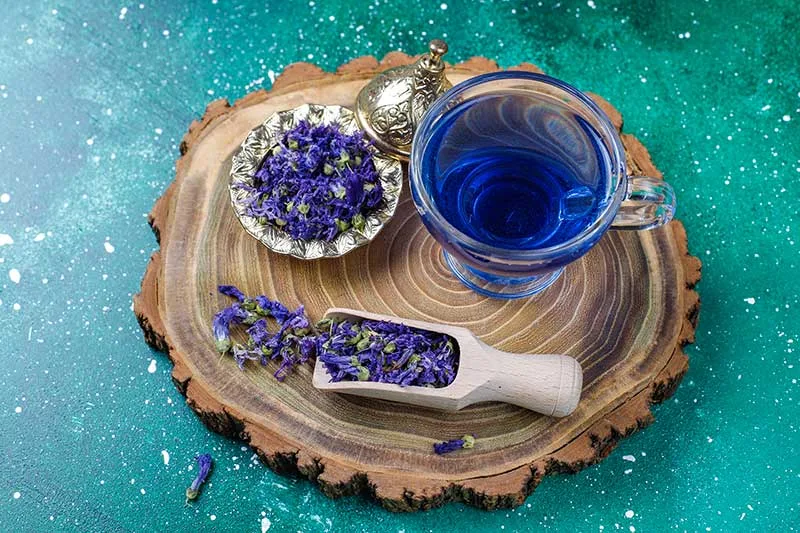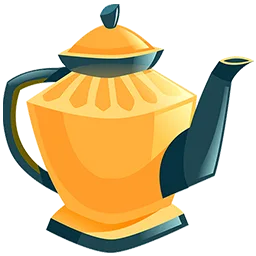Aromatherapy or Herbal Tea: Which One is More Effective?
In today’s world, when it comes to mental peace, health, and improving quality of life, two natural and, of course, traditional methods stand out: herbal teas and aromatherapy. As we discussed in detail earlier, herbal teas are drinks made from dried or fresh herbs and are ready to drink by steeping them in hot water, while aromatherapy is the use of essential oils, highly concentrated oils extracted from flowers, leaves, or roots of plants whose scent enters the nervous system through inhalation or topical application to the skin. Both methods have a long history and have been used in various cultures for purposes such as reducing stress, improving sleep, boosting immunity, and relieving pain.
But the main question is, which one is more effective scientifically? Are herbal teas more effective in improving health, or does aromatherapy work more quickly? What are the costs of each?
In this article, we will first discuss the benefits of each, then introduce several types of herbal teas and some popular essential oils, make a brief comparison between them, share some personal experience, and review common beliefs on social media.
Herbal Tea

Herbal Teas are actually drinks made by steeping flowers, leaves, or roots of plants in hot water. From the past to the present, people around the world have used herbal teas to calm the nerves, improve digestion, boost the immune system, and even sleep better. Unlike black or green tea, herbal teas are usually caffeine-free, which has made them so popular.
What Are The Health Benefits of Herbal Teas?
Here I have briefly mentioned some of the benefits of herbal teas:
- Physical health: Herbal teas improve digestive function, reduce inflammation, strengthen the immune system, improve heart health, and lower blood pressure. For example, Hibiscus herbal tea is very beneficial for blood pressure.
- Mental health: Reduce stress and anxiety, improve sleep, and calm the mind. For example, teas such as chamomile, lavender, rose, and mint are especially good for these.
- Great variety: Teas have different flavors that can change, or additives such as honey, lemon, and spices can be added to them.
- Easy to prepare: Herbs can be prepared, brewed, and used dry or fresh, and do not require special or advanced equipment.
Five Popular Herbal Teas
In this article, we will get to know five popular herbal teas that are both delicious and have health-promoting properties.
- Chamomile Tea: Suitable for relaxation, improving sleep, soothing the stomach.
- Lavender Tea: Reduces stress, anxiety, soothes nerves.
- Peppermint Tea: Helps digestion, relieves bloating, refreshes the mind.
- Ginger Tea: Anti-inflammatory, boosts immunity, relieves nausea.
- Rose Hip / Rose Petal Tea: Rich in vitamin C, helps skin and immunity, calms the mind.
Aromatherapy

Aromatherapy is the use of essential oils. These are highly concentrated oils that have a strong scent and are used in ways such as inhalation, steam inhalation, massage with a carrier oil, or use in a bath. The goal of aromatherapy is to stimulate the olfactory nervous system and trigger responses in parts of the brain that are associated with emotions, sleep, stress, and hormones.
What Are The Health Benefits of Aromatherapy?
Here are some of the well-known and familiar benefits of aromatherapy.
- Reduce stress and anxiety: Many studies have shown that lavender, rose, or citrus oils such as bergamot reduce anxiety.
- Improve sleep quality: Aromatherapy with lavender or bergamot oil has a favorable effect on sleep quality.
- Anti-inflammatory properties: Some oils, such as cinnamon, thyme, rosemary, lemon, or orange oil have antibacterial and inflammatory properties.
- Almost instant effect: The smell of the oil or its diffusion in the air usually creates faster emotional effects,
- Versatile application: They can be used in diffusers, massages, baths, or even as essential oils in skin products.
Five Popular Essential Oils in Aromatherapy
In this article, you will learn about five popular aromatherapy oils that have a good aroma and also help you relax and energize.
- Lavender Essential Oil: For relaxation, sleep, stress reduction.
- Rose Essential Oil: For improving mood, reducing anxiety.
- Bergamot Essential Oil: For a citrus oil that uses in studies to reduce anxiety and improve mood.
- Chamomile Essential Oil: For calming and soothing
- Peppermint Essential Oil: For a feeling of freshness, helping with concentration, and sometimes to relieve headaches or nausea.
Overall Comparison of Herbal Tea and Aromatherapy
| Criteria | Herbal tea | Aromatherapy |
|---|---|---|
| Physical health | Good for digestion, immunity, and inflammation | Anti-stress, some also anti-inflammatory and antimicrobial |
| Speed of effect | Slow and gradual, usually taken daily | Fast, psychological effect in minutes |
| Cost | Cheap and convenient | More expensive, requires equipment |
| Ease of use | Simple infusion with dried or fresh herb | Requires pure oil and diffuser or massage |
| Possible side effects | Low | Skin irritation or respiratory sensitivity |
Personal Experience
When I’m stressed or can’t sleep well for several nights in a row, I usually drink a cup of chamomile tea or a combination of chamomile and lavender. The feeling of relaxation that comes to me after half an hour is not comparable to something instant, but it feels more lasting. But when I need to calm down and feel better very quickly, for example, before an important meeting, using lavender oil in a diffuser or even a light scent of bergamot oil in a handkerchief or air diffuser has helped me a lot.

On social networks, many users claim that they prefer herbal teas for improved sleep and nutrition, as they enjoy their taste and find them more natural. On the other hand, aromatherapy fans believe that smell has a powerful psychological effect. Some also recommend combining both methods: for example, herbal tea before bed and aromatherapy when getting ready for bed or in the bath.
Conclusion
In the end, it is not possible to say in general that herbal teas are always better or aromatherapy is always more effective, each has its own advantages and disadvantages. If you are looking for a safe, inexpensive and healthy way to improve your physical and mental health, herbal teas are a great option, especially when you can consume them daily and regularly. However, if you need a faster effect, such as immediate stress relief, help you fall asleep or improve your mood at certain times, aromatherapy with high-quality essential oils is more effective.
In my opinion, a combination of these two methods is the best solution: herbal teas as a daily habit for health and stability, and aromatherapy as a tool for times of urgency or need for immediate relaxation. The choice depends on your priorities: is the cost important to you, can you tolerate the smell and concentration of the oil, and are you looking for long-term or quick effects? I recommend that if you are just starting out, try herbal teas first, then incorporate essential oils into your routine on special occasions, and in any case, consult a doctor if you have an underlying condition.
